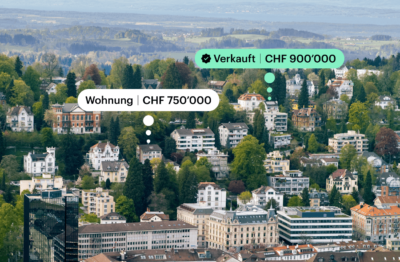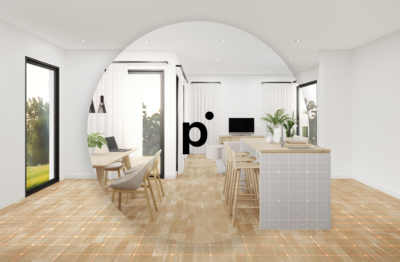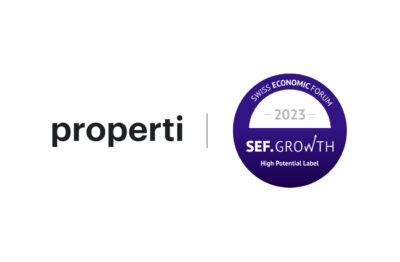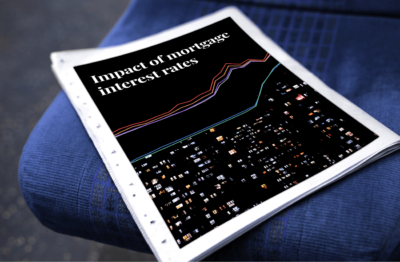Rental costs – Are you considering renting out your apartment? Then you should first determine whether this project is worthwhile. This is because letting not only generates income, but also rental costs.
Table of contents
ToggleIn this article, you will learn more about the income, but also the expenses in the form of rental costs, that you have with an apartment. It also deals with the regulations for an existing right of residence and the correct taxation of rental income in Switzerland.
Is it worth renting out?
The
renting out an apartment
can be an important source of income in many cases. In other cases, however, it hardly generates any income. This makes it all the more important for you as a landlord to calculate at an early stage whether the project is worthwhile.
In order to calculate the return on a rental property, it is necessary to compare the income – i.e. the rent – and the expenses – i.e. the costs of renting out an apartment. Please also bear in mind that any expensive costs that may arise in the future may be
renovations
or vacant apartments can reduce the yield.
You should also carefully analyze the value of the property and its surroundings. This will help you find out whether it will be possible to resell the property at a later date. The general condition of the property and the existing fixtures and fittings also play an important role.
The following rule of thumb applies: The apartment rental should cover the running costs and provisions and also generate as much income as possible. When buying a property, the income capitalization approach helps to determine the expected income.
Refrain from renting out an apartment if you are going to sell it soon.
sell it
would like to. This is because rented apartments tend to sell less well. This is due to the fact that buyers must first take over the tenants and cannot easily occupy them themselves.
Although it is generally not a problem for landlords to assert their entitlement to rent, statutory notice periods must also be observed here.
The new owner can give the tenant three months’ notice of termination to the next customary date. If the tenant requests a
Extension of the tenancy
(extension), the tenant must provide the landlord with a valid reason.
Terminating tenants is often complicated and time-consuming due to the strong tenancy law in Switzerland.
Before renting, also consider whether you have enough time for the role of landlord. Finding a tenant in particular can take a lot of time. With a professional real estate agent you are well advised and save a lot of time.
At Properti you will find friendly, experienced estate agents in your region
– and, if you wish, we can also take care of the property management for you.
Income: How much rent can I take?
For your rental income and expenditure statement, you should first consider what rent you can and may charge. As a landlord, it is in your interest to pay the highest possible rent. Attention: But not every rent is permissible. In Switzerland, according to Article 253b of the Code of Obligations protected from abusive rents and rent profiteering. Swiss courts allow landlords to achieve a rental yield of 0.5 % above the reference interest rate.
When setting the rent, use the rent that is customary for the location and neighborhood as a guide. The easiest way to do this is to look at comparable apartments in the same town or even in the same district. Compare the features, fittings and location with your property and narrow down the possible rent.
It is also helpful to consult the framework agreements of landlord and tenant associations, where you can find guide prices for the rent in the respective region. Please note that this is the net rent. This is supplemented by the
the amount of ancillary costs
which results in the gross rent.
Expenses: How high are the rental costs?
You should then deduct your expenses resulting from the costs of renting out the apartment from the gross rent obtained. Important: As a landlord, you are not allowed to charge all ancillary costs from the rental as ancillary costs. You will have to pay taxes, mortgage interest, repairs and insurance premiums yourself, but you will receive tax benefits in return – you can read more about this below.
As a landlord, you should always take the following costs into account when considering whether renting is worthwhile:
- Maintenance costs such as repairs
- Taxes
- Mortgage interest
- Insurance premiums
- Community costs
- Future renovations
- Possible losses due to vacancies
A particularly high monthly cost item in
condominium owners’ associations
the quarterly or annual advances, also known as community costs (or Hausgeld in Germany). All owners jointly set aside money for renovations in the so-called renovation fund and thus jointly finance the operation and renovation of common parts of the building such as the stairwell, elevator or laundry room.
Of the joint costs, you may only pass on to your tenants those cost items that explicitly relate to the respective rented apartment as part of the service charges. You must bear the remaining part of the costs yourself. You should therefore find out how much the community fee is and how often it has to be paid before you buy a property.
How do I pay tax on rental income?
The difference between income and expenditure is the yield you can achieve when renting. Please note, however, that you still have to pay tax on rental income. At the same time, there are some costs associated with renting out an apartment that you can deduct from your tax bill and thus save on taxes.
Your income and expenditure statement as a landlord therefore also includes an estimate of the taxes likely to be incurred. You should know that all rental income is subject to Swiss income tax.
Exception: If you sublet a room or an apartment
sublet
you do not receive any income, but only have to pay less rent. It is therefore not necessary for tenants to declare the payments received from the subtenant in their tax return.
As a landlord, you have the advantage of being able to claim certain expenses for tax purposes. You can deduct the following items from your tax bill:
- Expenses in connection with the rental, such as advertising costs
- Expenses for real estate management
- Costs for value-preserving renovations
- Maintenance costs such as community money
- Mortgage interest
- Expenses for insurance premiums
In your annual tax return, you can declare the costs you have incurred from renting out an apartment. Always keep all payment receipts. As an alternative to the actual costs, you can also use a flat-rate deduction, which in most Swiss cantons is 20% of the gross rental income. Details of the regulations in your canton can be found in the tax return guide.
Please note that as a landlord you will have to pay other annual taxes in addition to income tax. This includes (depending on the canton) the property tax. In addition, property tax is payable on the value of the property.
What applies if there is a right of residence?
If you have a right of residence, there are some special rules regarding the costs of renting. The legal basis for the right of residence can be found in Article 776 et seq. of the Civil Code (CC) and in the provisions on usufruct of real estate in Article 745 et seq. of the Swiss Civil Code. Among other things, it states that a right of residence is only valid if it is publicly notarized and recorded in the land register.
There are different types of right of residence. The most common is the combination of exclusive right of residence with right of joint use. In this case, the beneficiaries may occupy certain rooms exclusively, i.e. alone, and also have the right to use communal facilities such as the garden or the parking lot.
As the owner of a property with a right of residence, make sure that all the details of the arrangement are recorded in the contract. In particular, the question of who pays for what should be regulated there. According to Article 778 of the Swiss Civil Code, the beneficiaries of the exclusive right of residence are responsible for maintenance. Where a right of joint use applies, the owner must bear the maintenance costs. However, you may also calculate other provisions in the contract for right of residence.
Service charges such as electricity, water and heating should be billed according to consumption for properties with right of residence. If this is not possible, you can work with average figures or guide values. If these are part of the contract, you should invoice them separately.
Costs for damage or improvements are normally borne by the usufructuaries in the case of properties with right of residence. However, this only applies if the damage occurred through their fault. Otherwise, both residents and tenants are entitled to expect you as the owner to maintain the property and carry out and pay for any necessary repairs.
You can terminate the right of residence in return for compensation and with the consent of the usufructuary. In certain cases this is worthwhile, for example to rent out the property instead. In this case, you must also add the compensation to the rental costs.
Do you have further questions about renting with the right of abode, the costs for landlords and whether letting is worthwhile? Then get in touch with us – we offer a free consultation for landlords!
All data are without guarantee. The information on these Internet pages has been carefully researched. Nevertheless, no liability can be accepted for the accuracy of the information provided.












